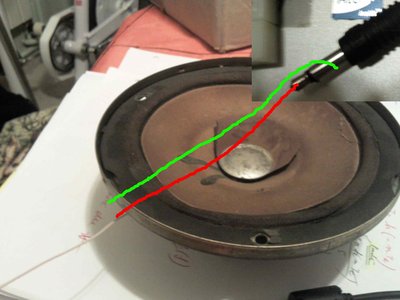Hi !
I currently trying to build an audio filter (with mbed, off course !)
But I am not an expert of signal processing....
When I still in analogue :

I connectedly my audio output (jack) to my speaker : Boney M is still singing !
When I go in numeric :
I connect my jack + on an input
DigitalIn in(p20);
My jack - on the GND, my speaker + on the p18.
DigitalOut out(p18);
my speaker - on an the GND
Let's go !
I just want (that just the beginning ) to copy the entry on the exit (that english wghen i write ?) The transfer function is 1 !
so,
while(1){
float s = in.read();
out.write(s);
}
but no song ! I tried to multiply my voltage (by 40). But no result !
Somebody have an idea ? I have already looking for about ADC....
@Bientôt !
Hi !
I currently trying to build an audio filter (with mbed, off course !)
But I am not an expert of signal processing....
When I still in analogue :
I connectedly my audio output (jack) to my speaker : Boney M is still singing !
When I go in numeric :
I connect my jack + on an input
My jack - on the GND, my speaker + on the p18.
my speaker - on an the GND
Let's go !
I just want (that just the beginning ) to copy the entry on the exit (that english wghen i write ?) The transfer function is 1 !
so,
while(1){ float s = in.read(); out.write(s); }but no song ! I tried to multiply my voltage (by 40). But no result !
Somebody have an idea ? I have already looking for about ADC....
@Bientôt !